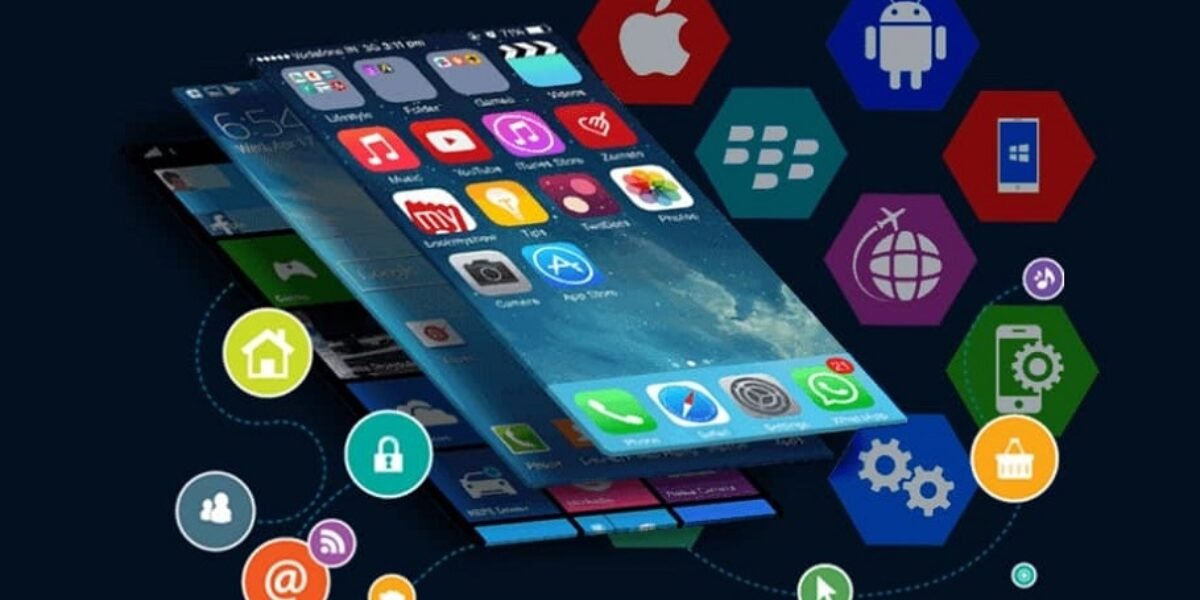Mobile App Development – 4 Ways Data Science Can Transform Mobile App Development
Mobile App Development – 4 Ways Data Science Can Transform Mobile App Development
To make the most of this data, businesses need to find smart and efficient ways to derive valuable insights that can drive their growth and make them stand out.
As a result, data science is now being used in mobile app development, thereby, revolutionizing the industry. In this article, we will explore how data science can transform mobile app development for developers and businesses.
But before we dive into that, let us first gain some understanding.
What Is Data Science?
Data science is a multidisciplinary field that utilizes principles from computer engineering, artificial intelligence, mathematics, and statistics to analyze large amounts of data and extract meaningful insights.
By combining programming skills with expertise in mathematics and statistics, data scientists can extract goal-oriented data analytics.
This approach enables businesses to gain a better understanding of their industry domain or business niche, leading to improved performance and business intelligence..
How Does Data Science Work In Mobile App Development?
Data science is mainly concerned with computer programming and the development of AI and ML models that can automatically analyze large volumes of data.
The role of a data scientist in mobile app development involves building data processing pipelines, creating machine learning models, designing architecture, and preparing application analytics. These ML models are then passed on to the app developers for integration into mobile apps.
The focus of data science in mobile app development lies in data ingestion, AI & ML model development, and deployment into mobile apps. Additionally, data science helps app developers in modifying and redeploying the ML models to accommodate newly labeled data or changes in model inputs.
However, it is the mobile app developer’s responsibility to create and maintain the mobile application. Data science works as a component to integrate an automated data analysis model, and therefore, data scientists and app developers work together to develop mobile apps.
The use of data science in app development has significant potential because machine learning and artificial intelligence can transform mobile apps.
How Data Science Can Transform Mobile App Development?
Data science has a vital role in mobile app development. Mobile apps typically gather significant amounts of data and analytics, especially for e-commerce, business, and enterprise-scale apps.
To manage such a vast amount of data, mobile apps are integrated with APIs or cloud services. However, these technologies are designed only for gathering information.
Thus, there is a pressing need for a smart technology solution that can efficiently handle large data sizes and help derive business-driven insights. Integrating data science in mobile app development provides additional benefits, including:
1. Understanding User Behaviour
The success of any business relies on its ability to understand its target audience accurately. In today’s mobile-centric world, people use mobile apps and smartphones extensively to access online services, and businesses collect customer data to determine their preferences and interests.
Data science enables mobile apps to intelligently gather information and generate valuable insights for business intelligence.
This, in turn, assists app owners and stakeholders in analyzing user behavior accurately and adjusting their business strategy accordingly. As a result, businesses can accomplish their objectives more efficiently and avoid potential setbacks.
2. Decode Hidden Issues
Using data science in mobile app development has several benefits, one of which is the ability to identify potential problems that may have been overlooked during development.
Typically, app errors or flaws are only noticed after deployment, leading to increased costs and wasted effort for the development team and app owners.
With data science, however, hidden or underlying issues in mobile apps can be uncovered using programmed algorithms that detect patterns in unstructured and unrelated data.
This is particularly useful in android app development, where data science can be used to identify bugs and technical glitches before final deployment, resulting in a flawless development process..
3. Improve the Development Process
Data science is not limited to analytics alone; it also involves programming and creating automated capabilities that can improve the app development process.
By utilizing data science, developers can incorporate predictive analytics and machine learning models to create apps. This can help in improving different operations, ranging from data collection to obtaining valuable insights.
Therefore, data science enables app development companies and developers to accelerate their deployment and processes, reducing time, effort, and costs.
4. Offer Personalized User Experience
The success of an app is highly dependent on user experience, as it shapes the brand image. To ensure optimal user experience, businesses are constantly striving to enhance their apps with innovative features and attractive designs.
Despite these efforts, many apps still struggle to engage and retain users. However, by leveraging data science in mobile app development, businesses can provide more personalized and superior user experiences. This, in turn, can improve brand perception and customer loyalty.
Conclusion
Data science is a technology that is both intelligent and revolutionary. It enhances mobile applications by equipping them with automated data analytics capabilities, enabling them to extract valuable business insights.
By leveraging data science, app development becomes more effective and outcome-oriented. The growing adoption of this technology suggests a promising future.
However, given that it is still in its early stages of development, it is advisable to seek the guidance of a professional mobile app development company to ensure successful integration of data science into your app project.
